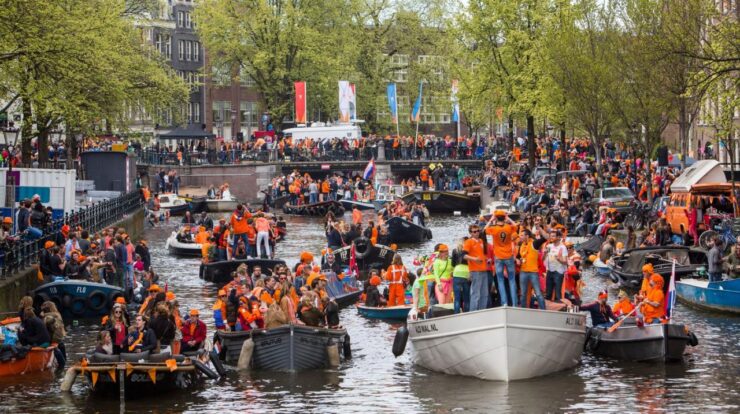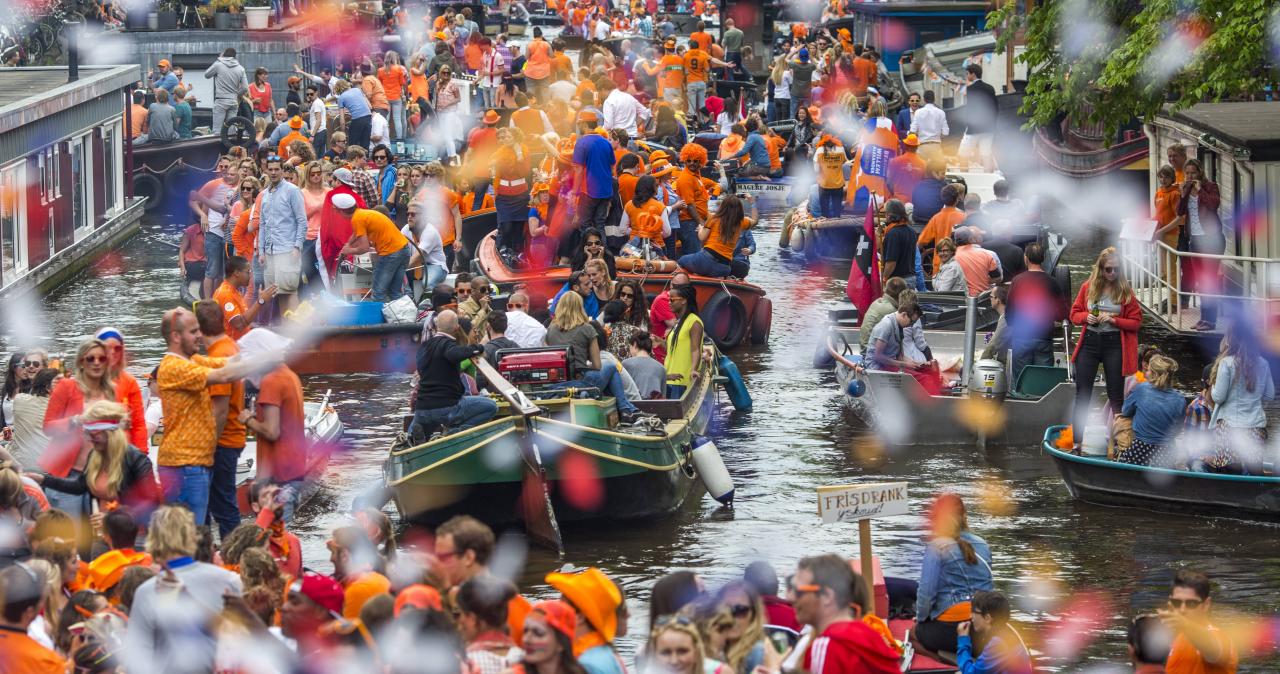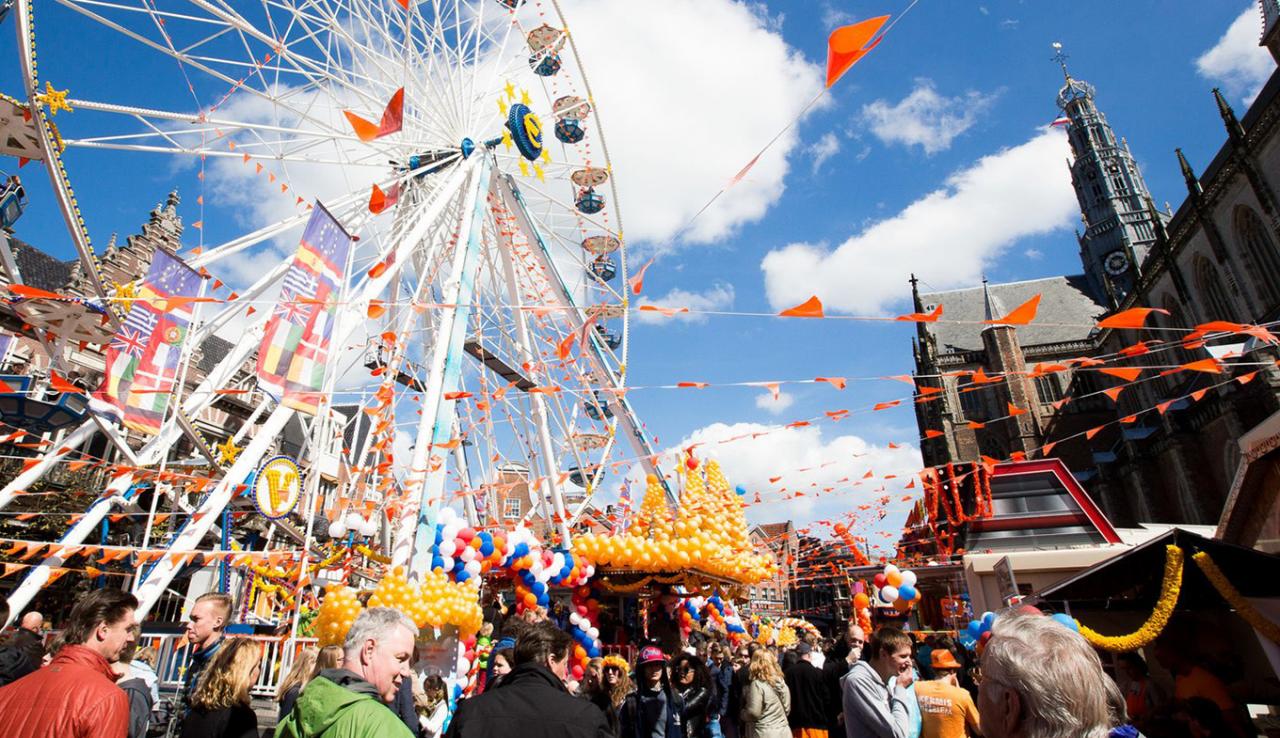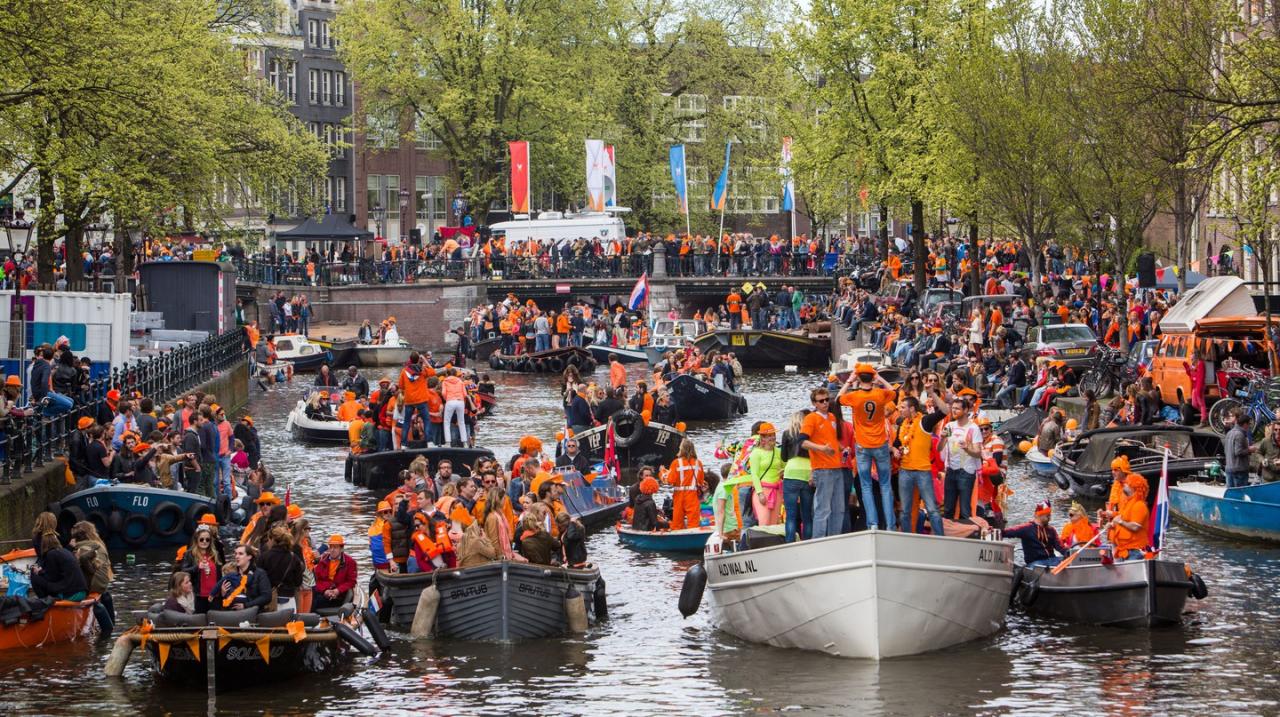
King’s Day Netherlands, an exuberant annual celebration, takes center stage, immersing the Netherlands in a sea of orange-clad revelers. This day of national pride honors the birthday of King Willem-Alexander, embodying the rich tapestry of Dutch traditions, vibrant festivities, and profound cultural significance.
From bustling street markets adorned with vibrant orange hues to the infectious rhythm of live music filling the air, King’s Day Netherlands captivates with its unique blend of revelry and national unity.
Historical Origins of King’s Day: King’s Day Netherlands

King’s Day is a national holiday in the Netherlands celebrated on April 27th, the birthday of King Willem-Alexander. The origins of the celebration date back to 1885, when it was established as “Princess’s Day” to mark the birthday of Princess Wilhelmina.
When Wilhelmina became Queen in 1890, the holiday was renamed “Queen’s Day.” In 2013, after the accession of King Willem-Alexander, the holiday was renamed “King’s Day.”
Festivities and Traditions, King’s day netherlands
King’s Day is celebrated with a variety of festivities and traditions, including:
- Orange-themed attire and decorations:Orange is the national color of the Netherlands, and it is worn by many people during King’s Day celebrations. Streets and buildings are also decorated with orange flags and bunting.
- Street markets and flea markets:Many towns and cities host street markets and flea markets on King’s Day, where people can buy and sell a variety of goods, including antiques, clothes, and food.
- Music performances and live entertainment:King’s Day is also a time for music and entertainment. Many cities host live music performances, and there are often street performers as well.
Economic Impact
King’s Day has a significant economic impact on the Netherlands. The holiday brings in millions of euros in tourism revenue, and it is a major boost for retail sales. In 2019, King’s Day generated an estimated 600 million euros in economic activity.
Cultural Significance
King’s Day is an important cultural event in the Netherlands. It is a day for people to come together and celebrate their national identity. The holiday also promotes Dutch values, such as tolerance, diversity, and unity.
International Recognition and Influence
King’s Day is an internationally recognized event. It is celebrated by Dutch communities around the world, and it has become increasingly popular with tourists in recent years. The holiday is a major tourist attraction, and it helps to promote Dutch culture and tourism.
Closing Notes

King’s Day Netherlands stands as a testament to the indomitable spirit of the Dutch people, a celebration that transcends its festive facade to weave a vibrant thread into the fabric of Dutch society. Its economic impact, cultural significance, and international recognition solidify its place as a cherished tradition, eagerly anticipated year after year.
Query Resolution
What is the historical origin of King’s Day Netherlands?
King’s Day traces its roots back to 1885, when it was celebrated as Queen’s Day to honor Queen Wilhelmina’s birthday. After Queen Juliana ascended to the throne, the celebration was shifted to her birthday in April. With the accession of King Willem-Alexander in 2013, the event was renamed King’s Day and celebrated on his birthday, April 27.
What are some unique customs observed during King’s Day Netherlands?
One distinctive custom is the vrijmarkt, a nationwide flea market where people set up stalls to sell their used belongings, creating a lively and bustling atmosphere. Another tradition is the wearing of orange clothing and accessories, a vibrant display of national pride.
What is the economic impact of King’s Day Netherlands?
King’s Day has a significant economic impact, boosting tourism, retail sales, and hospitality sectors. The influx of visitors and the increased spending contribute to the overall economic growth of the Netherlands.
